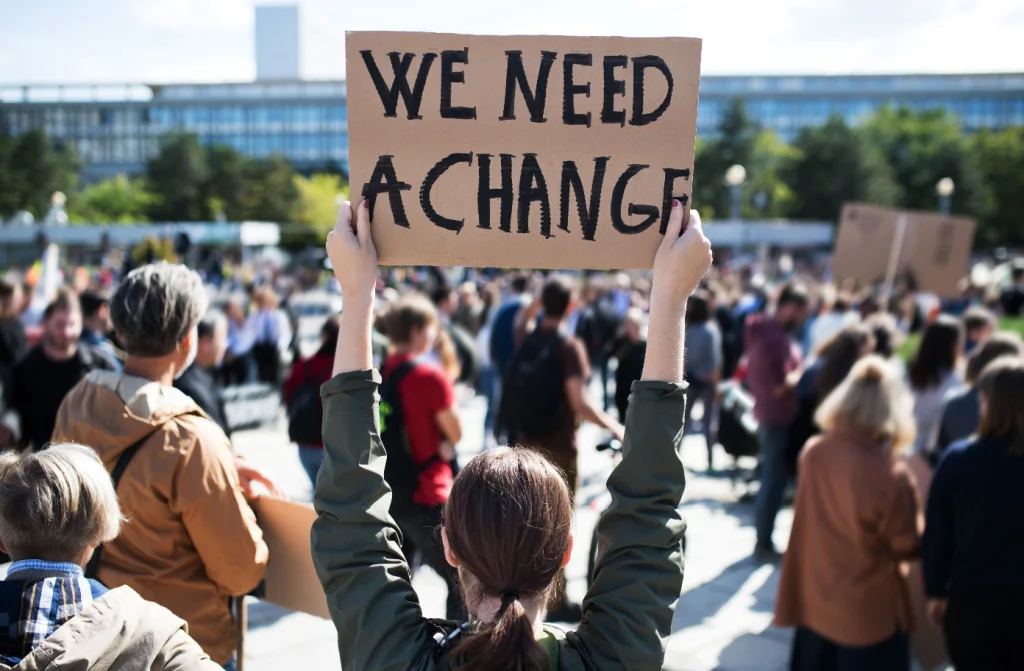The impact of climate change on our physical health is undeniable. Many studies have demonstrated that, for example, extreme temperatures could cause heat stroke and death, floods spread waterborne disease, and air pollution could result in respiratory and cardiovascular illnesses. But how does climate change affect mental health? There is increasing evidence that climate change can also negatively impact our mental health, challenging even more the already strained behavioral health service sector.
But before getting into the details of how does climate change affects mental health, we must better understand the concept. Climate change is related to long-term changes in temperatures and weather patterns. These changes can be natural, caused by the sun’s activity or significant volcanic eruptions. Still, since the 1800s, human activities have been the primary cause of climate change, mainly due to greenhouse gas emissions. Since the Industrial Revolution, humankind has been releasing significant quantities of greenhouse gases into the atmosphere, aggravating climate change. Global temperatures have increased in the last 30 years and are at the highest since the record began.
The consequences of climate change include severe draughts, water scarcity, extreme fires, flooding, rising sea levels, melting polar ice, and destructive storms. These unfortunate events threaten our physical and mental well-being. The following article explores how does climate change affects mental health and ways to minimize its effects.
The impact of climate change on mental health

Going through extreme weather conditions like drought, hurricanes, wildfires, or floods is traumatic. The loss, destruction, and displacement people go through could cause various mental health problems, from depression and anxiety to post-traumatic stress disorder (PTSD) or even suicidal thoughts.
Studies have shown that 67% of the people who were exposed to the California Camp Fire of 2018 have experienced a trauma similar to PTSD. According to people who lived through Hurricane Katrina, these traumas could last for years.
Even for those who have not directly experienced climate-related disasters, climate change is affecting mental health: 68% of American adults report feeling at least somewhat anxious about it.
The effects on mental health will continue to increase as climate change will continue to cause extreme temperatures and worsening air pollution. There is already evidence linking rising ambient temperatures to higher rates of ER visits related to mental health. Suicide attempts and violent occurrences increase in line with rising temperatures. In the same way, prolonged exposure to air pollution has been linked to increased anxiety and even a rise in suicide rates.
Also, climate change increases stress and anxiety levels for people who are forced to change their living conditions. For example, farmers who are affected by extreme drought or devastating floods. They are no longer able to grow their crops and sustain their living, which could impact their mental health. Also, businesses are affected when such events happen, leading to short- and long-term financial challenges. So, the question is not “How does climate change affect mental health?” but “How much could climate change affect mental health?”
Which demographics are more exposed to climate change-related mental illnesses?

As studies show, specific demographics are more exposed to climate change-related mental illnesses. People who already have some health problems or substance abuse problems have an increased risk of death as a result of extreme heat and humidity.
Also, between 25% to 30% percent of homeless people suffer from a severe mental condition, and many of them have chronic diseases that are not being controlled, increasing their vulnerability to the adverse effects of climate change-related mental illnesses.
Another category vulnerable to climate change-related mental illnesses is black people and people of color in general. Mental health problems are more common among Black Americans than other categories of people. Additionally, the chances for them to live in places with high temperatures, air pollution, and increased flood risk are higher. Indigenous people are particularly vulnerable, as many are affected by both the direct consequences of climate change – such as extreme heat, droughts, or floods – and its indirect effects – such as loss of land and food poverty. The psychological well-being of indigenous people who have strong ties to their land can be significantly impacted by loss or displacement due to climate change.
Surprisingly, young people are concerned about and affected by climate change globally. A 10-nation survey states that 84% of people ages 16 to 25 are at least moderately concerned about climate change, and around 45% of the same group said that climate change negatively affects their daily lives.
Finally, a particular demographic highly exposed to climate change is older people. Individuals who are older and have pre-existing mental health disorders are more vulnerable to social isolation, inadequate social support, and substandard living conditions that heighten their vulnerability to climate-related events.
How to reduce the risks of climate change on mental health?

Fighting climate change has been a significant issue globally for decades. Besides the strategies being implemented to reduce its effect on physical health, some are also focused on easing the strain on mental health. Here’s what we can do as a society to reduce the risks of climate change on mental health:
- Provide support for those at risk: The first step in creating effective support plans is figuring out who is most vulnerable to the harmful effects of climate change on mental health, such as those who already have mental health issues. Incorporating mental health care into any emergency response to a climate crisis is also crucial. For those who are having long-term impacts, such as those who have PTSD, this care should ideally incorporate longer-term assistance in addition to focusing on people’s acute emotional reactions.
- Funding treatment models and support: New approaches to care and support for those facing mental health issues due to climate change may lessen the strain on already overworked healthcare delivery systems. Peer support groups can assist people in developing resilience, and climate-aware therapists can provide support for persons experiencing anxiety related to climate change.
- Taking small steps to address climate change: Involving yourself in activities that address climate change could give you a sense of accomplishment. Individual actions, like recycling, can support the development of personal resilience and help overcome sadness and helplessness. Engaging in group activities promoting health and well-being, such as community outreach or advocacy, can help people feel more connected to one another and their shared values.
- Enhance education for healthcare professionals: Healthcare professionals need to be completely aware of the adverse effects of climate change on mental health. They also need to understand the strategies to combat this issue. This will help them better understand their patients’ needs and apply the proper methods to help them overcome their illness.
- Continuous research and evaluation: To fully understand how climate change influences mental health, particularly the effects on various populations, further research is required. Additionally, when examining all the factors that affect mental health, researchers must consider climate change to determine the best course of action and therapies.
Author’s conclusion
In conclusion, it’s clear that climate change doesn’t just impact our physical health but also takes a toll on our mental well-being. Understanding “how does climate change affect mental health” is crucial as we witness rising temperatures, extreme weather events, and environmental disruptions. From aggravating existing mental health conditions to inducing anxiety and stress, climate change affects everyone, particularly vulnerable populations such as the elderly, individuals with pre-existing mental health issues, people of color, and indigenous communities.
However, there’s hope. By acknowledging these challenges and taking proactive steps, we can mitigate the risks. Vital strategies include providing targeted support for those at risk, funding innovative treatment models, engaging in climate-conscious actions, enhancing healthcare professional education, and promoting continuous research. These efforts alleviate the burden on mental health services and foster resilience and community solidarity in the face of climate adversity.
In our collective journey toward a sustainable future, addressing both the physical and mental health impacts of climate change is paramount. By prioritizing mental and physical health, we can build a more resilient society better equipped to face the challenges ahead.











